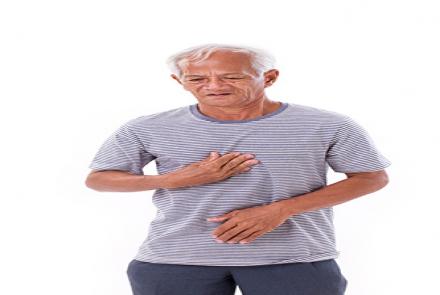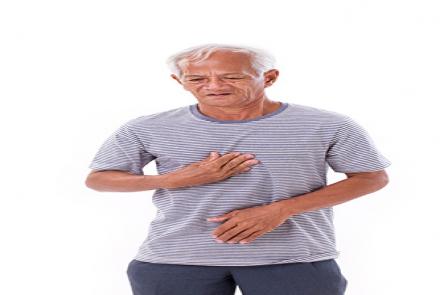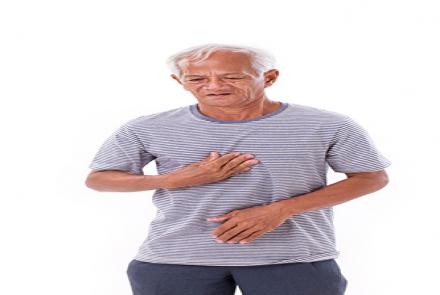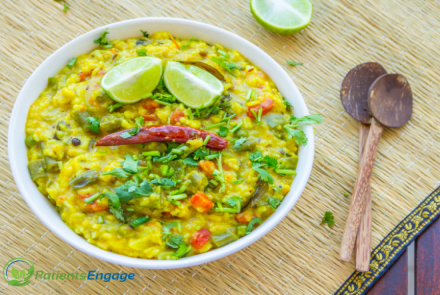
We often hear elderly people struggling with digestive issues like constipation, acid reflux, difficulty in swallowing, ulcers and more. Dr. Devendra Desai, Consultant in Gastroenterology at Hinduja Hospital, Khar explains how aging impacts gut health.
An elderly person is defined as age of 65 years or above. The predicted global population above the age of 80 years is expected to be 17% by 2050.
How does ageing affect our gut?
Aging affects most of the gastrointestinal tract.
- Starting with oral cavity or mouth - there is impaired co-ordination of swallowing called as neuromuscular co-ordination.
- In esophagus, there is reduction in peristalsis. There is reduction in the pressures in the areas called as upper esophageal sphincter and lower esophageal sphincter.
- In stomach, there is reduction in emptying of liquids. In small intestine, there is reduced immunity and there is alteration in drug metabolism.
- In colon or large intestine, the transit is delayed. The sphincter which controls continence becomes weak.
- There is reduced pancreatic secretions.
- The liver workings change so it becomes susceptible to drug side effects.
- The gall bladder emptying is reduced.
- The aging gut becomes susceptible to medicines and other insults such as infections.
What are the common GI conditions seen in the geriatric population?
- Difficulty in swallowing due to impaired coordination/ dental issues
- Dry mouth
- Aspiration of food material
- Acidity/ acid reflux
- Increased susceptibility to pill induced inflammation in esophagus (pill esophagitis)
- Ulcer in stomach or duodenum
- Decreased blood supply to intestines (mesenteric ischemia)
- Bleeding into stomach, small or large intestines
- Constipation and fecal incontinence
- Diverticula in large intestine
- Inflammation in large intestine
What changes are seen in the gut muscle and motility with age?
These are not apparent before 7th decade. There are changes in muscle throughout the gut, starting from mouth, pharynx, esophagus to large intestine, which result in altered functioning of these organs. Some examples are difficulty in swallowing and fecal incontinence. There is decrease in motility that results in constipation and bloating.
We often hear about good bacteria that we have in our gut? Can you explain the term microbiome? How does it change with aging?
A microbiome is the community of micro-organisms living together in a particular habitat or environment. Humans, animals and plants have their own unique microbiomes. For example, the human gut microbiome is comprised of micro-organism including bacteria, viruses, and fungi. There is a balance maintained during normalcy. The composition of the microbiota varies within and between tissues. Microbial composition in the gut of newborns is dramatically shaped by diet and varies depending on whether the infant is fed with maternal milk or formula.
The human digestive tract is inhabited by numerous microorganisms. The total estimated number of gut microorganisms is somewhere between 1013 and 1014, hovering around the total estimated number of human body cells (3–4 × 1013). Bacteria outnumber all other members of the gut microbial community, and the total number of bacterial species found in the gut is estimated to be about 2000.
Studies in humans and laboratory models have shown that the composition of the gut microbiota dramatically changes during aging and is associated with host health and life span. We do not know much about effect of aging on microbiome – in fact it may be the other way around. What we know is that there is reduction in diversity in the normal resident (commensal) bacteria which may allow the pathogenic (those causing disease) bacteria to populate.
Too much of bad bacteria can cause an imbalance that can lead to dysbiosis. Please explain how dysbiosis occurs and how is it related to the aging gut?
Dysbiosis is an imbalance between the types of organism present in a person's natural microflora, especially which of the gut, thought to contribute to a range of conditions of ill health.
Gut dysbiosis can trigger the innate immune response and chronic low-grade inflammation, leading to many age-related degenerative pathologies and unhealthy aging.
Is dysbiosis associated with greater risk of comorbidities like cancer and inflammatory diseases?
Dysbiosis has been postulated to be associated with many diseases in the recent years. Inflammatory bowel disease, obesity, liver disease, Parkinson’s disease, Dementia are some of the many diseases which have dysbiosis as an important causative factor.
How can poor gut health affect psychosocial wellbeing of the patient?
There is a gut brain communication or axis. There are many diseases in which poor gut health significantly affect psychosocial health. Irritable bowel syndrome is one such condition where there is a relation between gut health and psychosocial wellbeing.
How effective are probiotic supplements for the aging gut?
Probiotics can be used to modulate the age-related gut microbiota imbalance and to introduce strains with specific health-promoting effects. The principal claimed benefits of probiotics in elderly people are prevention of diarrheal diseases, protection against pathogens, enhancement of the intestinal barrier function, improvement of gastrointestinal motility and inflammatory intestinal disorders, immunomodulatory effects, and prevention of colon cancer. However, we need further evidence to substantiate these claims. At present probiotics are not advised for aging gut.
What is your advice to the elderly and young to have and maintain a healthy digestive system?
The simple and practical tips are:
- Eat less sugar and sweeteners,
- Reduce high fat in diet and red meat,
- Reduce stress,
- Exercise regularly,
- Get enough sleep, and
- Avoid smoking

Dr.Devendra Desai had started “Inflammatory Bowel Disease Clinic” at P D Hinduja Hospital and founded patient support group called “Colitis Association of India”.
He has published more than 135 papers in national and international indexed journals and won 12 awards at various stages.



